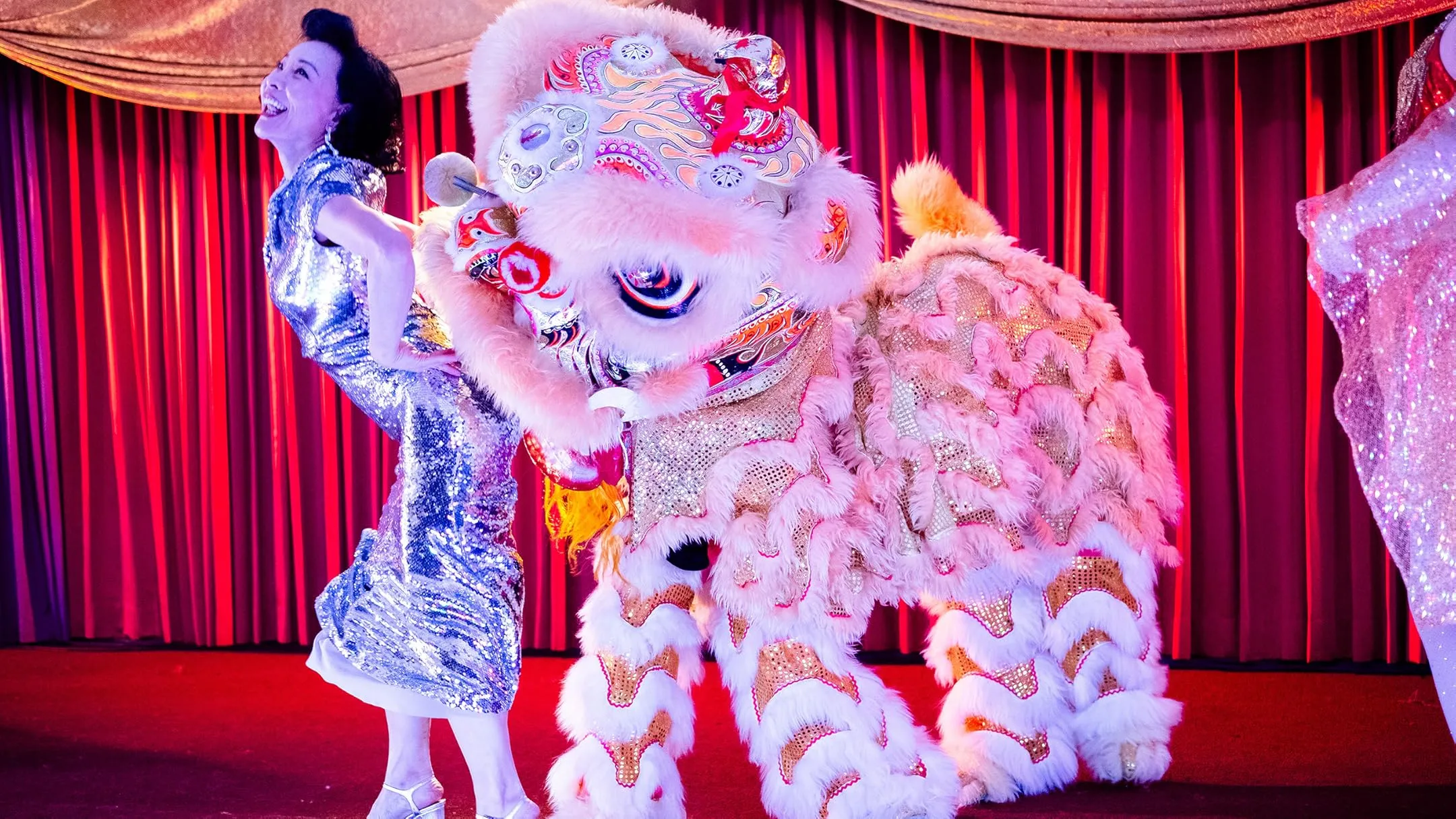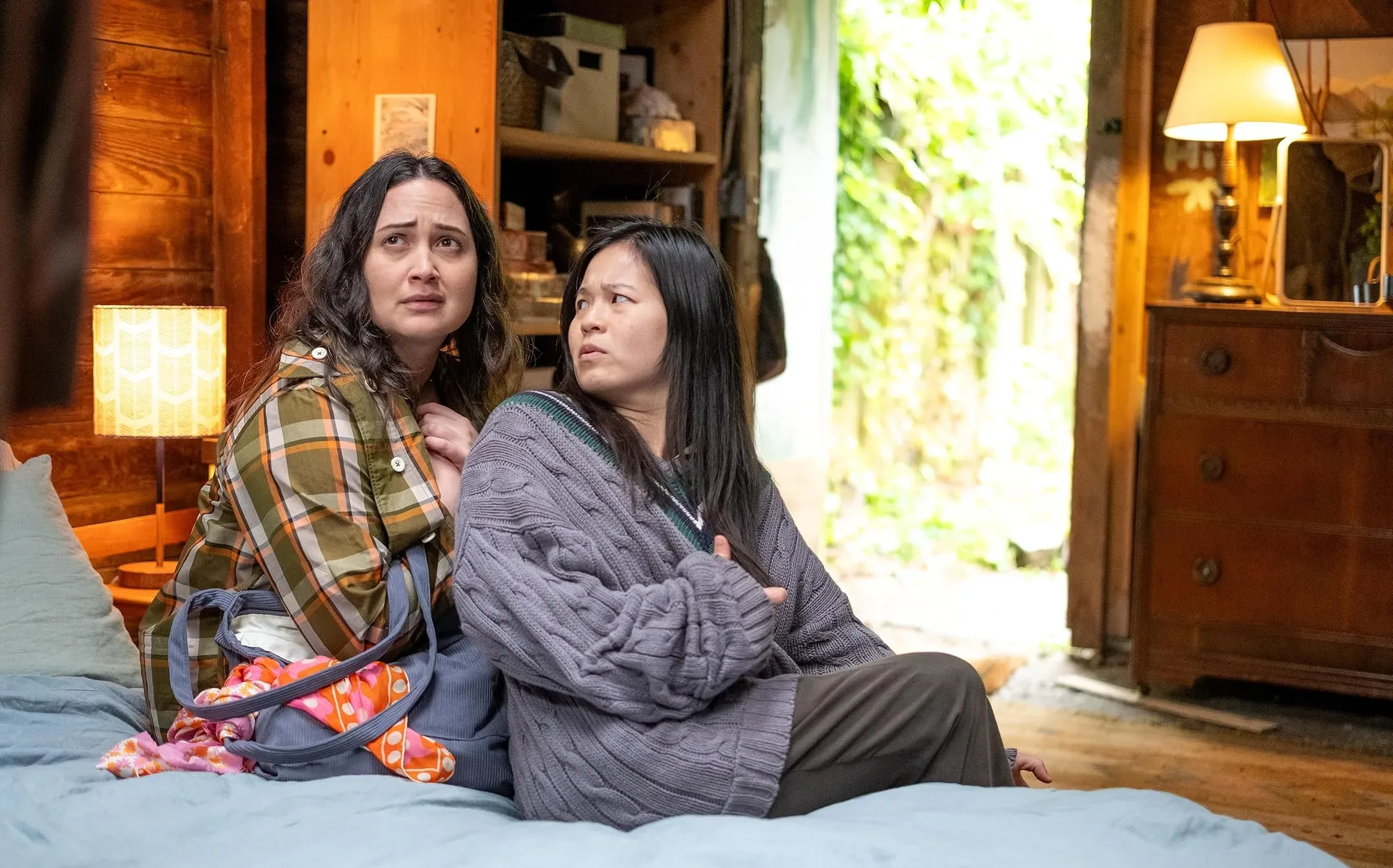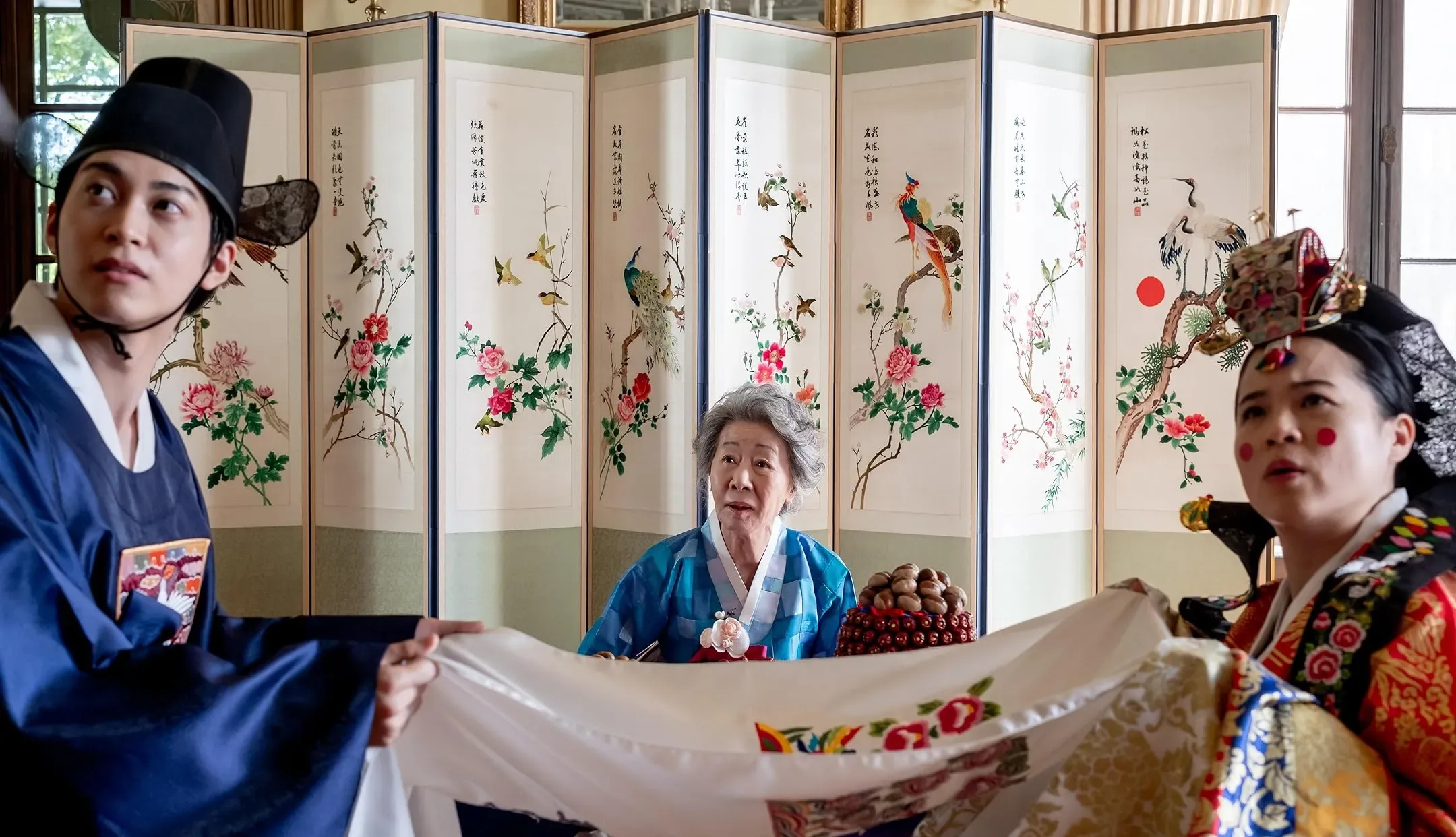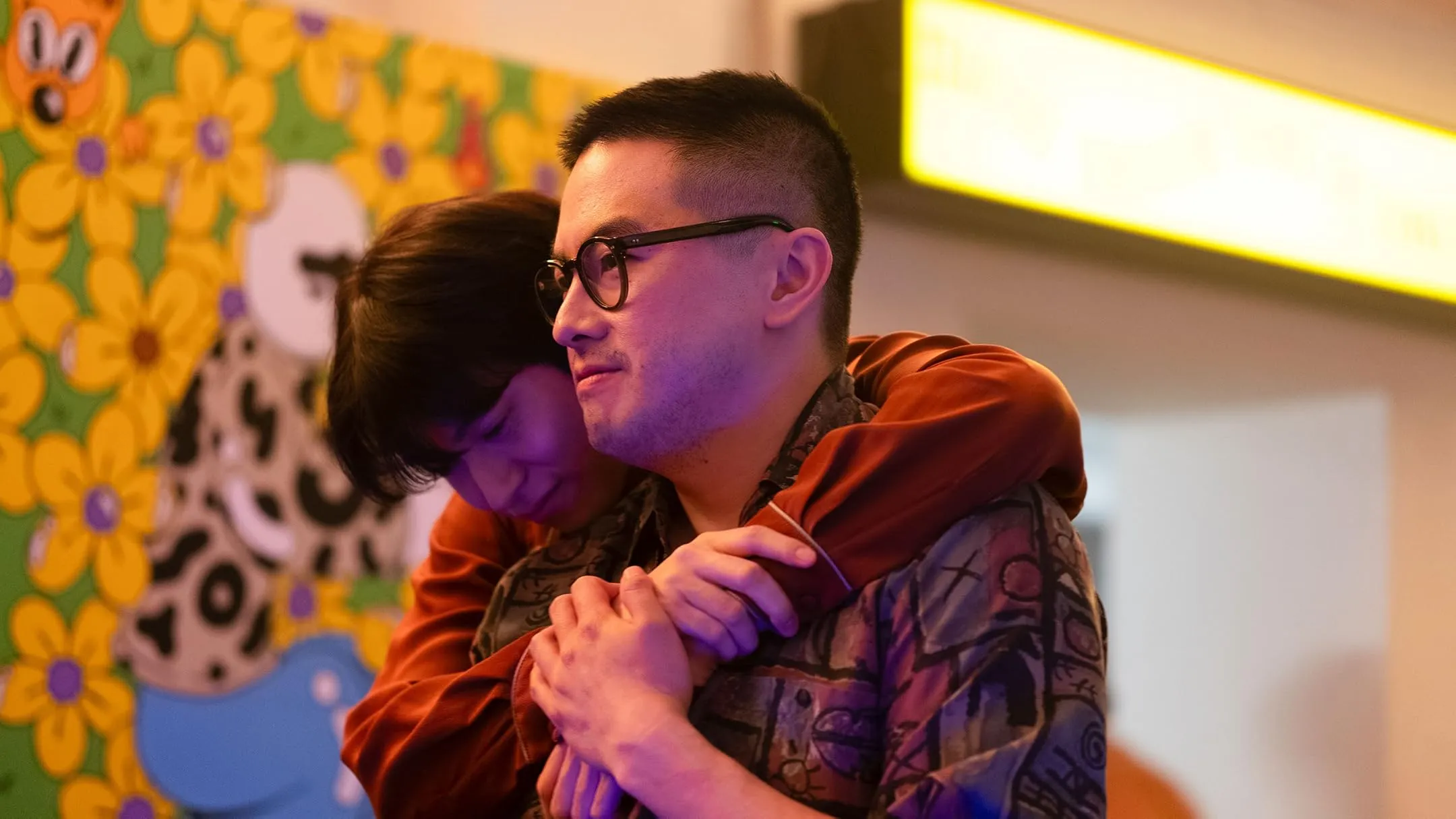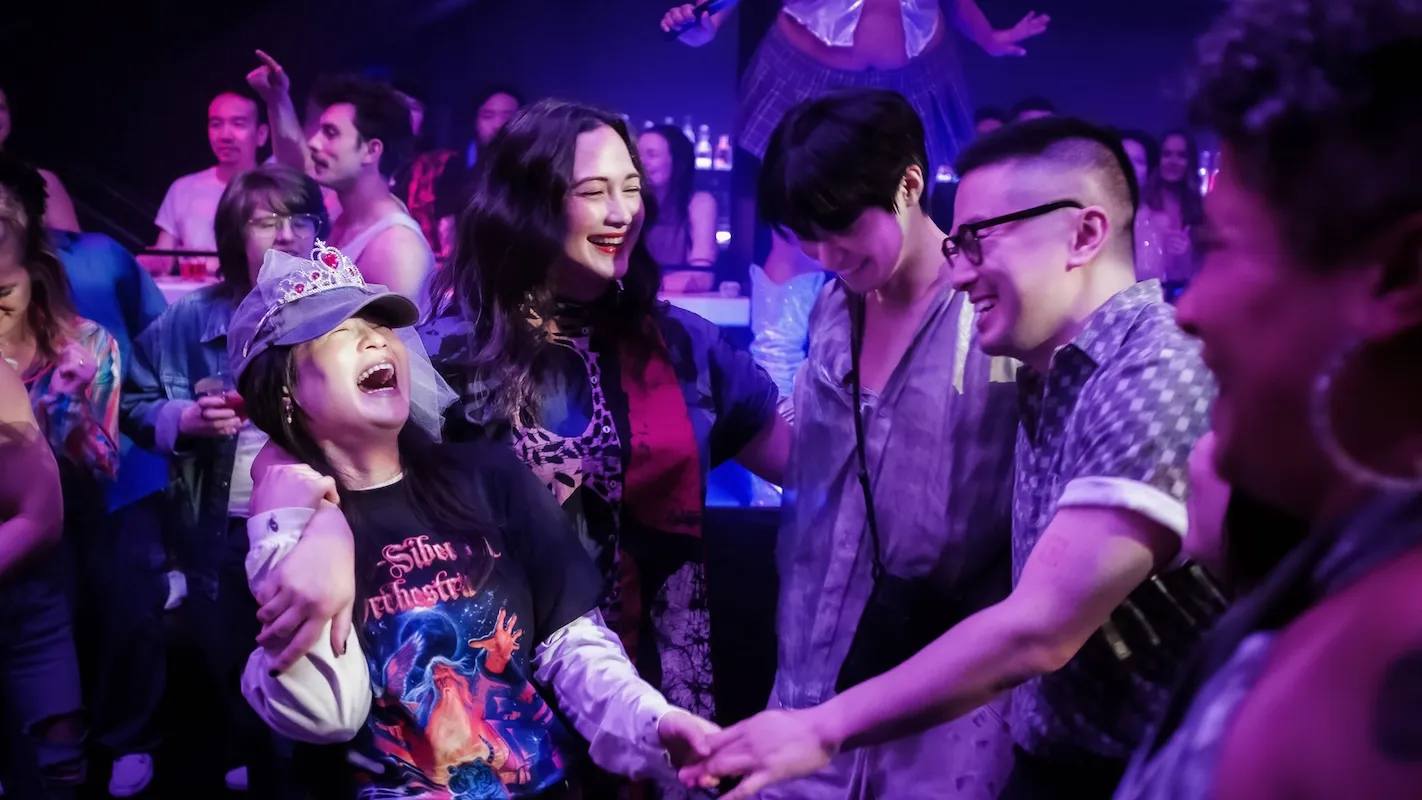In the struggle between hope and despair, “The Wedding Banquet” explores Angela and Lee’s journey through IVF, where each setback reveals the raw emotions of unfulfilled dreams. Their path unfolds in a society wrestling with unspoken expectations and silent heartaches. The quest for parenthood becomes a profound exploration of human resilience and desire.
The narrative weaves through the lives of Chris and Min, whose relationship challenges traditional boundaries. Their marriage emerges as a complex negotiation—part genuine connection, part survival strategy. The proposal becomes a pivotal moment, capturing the intricate dance between personal longing and societal constraints.
This interpretation transcends a simple retelling of Ang Lee’s original work. It dissects the nuanced experiences of individuals navigating identity, belonging, and familial connections in a world that rarely accommodates personal truths. The wedding banquet transforms from a mere celebration into a powerful statement about choice, love, and the intricate ways people construct meaning within challenging social landscapes.
The Fractured Mirrors of Connection: A Character Study in “The Wedding Banquet”
Angela emerges as a complex character, navigating the intricate terrain of maternal relationships and self-discovery. Her journey reveals the tension between personal identity and familial expectations. May, her mother, offers a love that feels both nurturing and constraining. Angela confronts the deeply personal struggle of understanding herself beyond the reflections imposed by familial bonds.
Lee stands as a counterpoint, her desire for motherhood representing a profound emotional quest. She seeks connection through the possibility of a child, wrestling with the raw vulnerability of hope and potential loss. Her yearning transcends simple biological impulse, speaking to a deeper human need for meaning and continuity.
The relationship between Chris and Min explores the nuanced dynamics of heritage and personal choice. Min carries the weight of familial expectations, his emotional landscape shaped by the pressure of ancestral demands. His pursuit of love becomes a delicate negotiation between individual desire and familial responsibility.
Chris represents a complex emotional terrain, embodying uncertainty and hesitation. His approach to love reflects a deeper exploration of commitment and vulnerability. Against Min’s backdrop of stability and expectation, Chris emerges as a character grappling with the fundamental questions of emotional connection and personal autonomy.
Their interactions reveal the complex emotional geography where individual desires intersect with societal and familial pressures, creating a rich tapestry of human experience.
The Dance of Laughter and Lament: Tonal Shifts in “The Wedding Banquet”
“The Wedding Banquet” explores a complex emotional terrain where comedy and sincerity intertwine, creating a nuanced portrayal of human experience. The film’s comedic moments burst forth like fireflies, illuminating the darker aspects of personal struggle. From the frantic household preparations before Min’s grandmother’s visit to witty exchanges about queer relationships, humor acts as a critical lens into deeper emotional landscapes.
Beneath the surface of laughter exists a profound tension exploring the delicate balance between joy and potential loss. Each comedic moment walks a razor’s edge, revealing the fragility of human connections.
The narrative particularly shines through Angela and Lee’s IVF journey, where their attempts reveal intricate layers of biological challenges and societal pressures. Shared laughter amid their trials exposes life’s unpredictable nature—a mix of heartbreak, hope, and fleeting happiness.
The film challenges viewers to examine themes of acceptance and identity, using humor as a powerful tool for exploring LGBTQ+ experiences. It presents an intimate glimpse into personal struggles while questioning societal expectations, inviting audiences to embrace authenticity beyond conventional boundaries.
Threads of Change: Cultural Reflections in “The Wedding Banquet”
Andrew Ahn’s “The Wedding Banquet” explores LGBTQ+ identity and acceptance through a deeply personal lens. The film examines societal changes since its 1993 release, highlighting the ongoing challenges faced by queer communities. Angela and her mother’s relationship reveals the complex dynamics of generational attitudes toward LGBTQ+ experiences.
The characters wrestle with the intricate balance between personal desire and familial expectations. Their stories illuminate the immigrant experience, showing how cultural pressures intersect with individual identity. Min’s connection with his grandmother particularly captures the tension between personal authenticity and traditional family values.
Through nuanced storytelling, the film probes the delicate spaces where love, duty, and cultural heritage collide. It presents a raw exploration of queer experiences within immigrant families, challenging viewers to understand the multifaceted nature of identity and belonging.
The Alchemy of Performance: Illuminate and Evoke in “The Wedding Banquet”
Joan Chen delivers a nuanced performance as May, tracing an emotional arc that reveals deep familial complexities. Her portrayal transforms from initial resistance to profound acceptance, exploring the delicate dynamics between mother and daughter.
Chen breathes life into May’s character, revealing subtle shifts of emotion that speak to broader human experiences of connection and understanding.
Youn Yuh-jung creates a magnetic presence as Min’s grandmother, presenting a character rich with cultural depth. Her performance captures the intricate tensions between traditional expectations and personal identity. Through carefully crafted gestures and expressions, she communicates a world of unspoken family narratives, challenging viewers to look beyond surface-level interactions.
The ensemble cast weaves a compelling narrative of human connection. Dialogue pulses with energy, revealing characters’ inner worlds through sharp exchanges and playful interactions.
Scenes that explore household dynamics bring unexpected humor to serious themes of identity and acceptance. The actors create a tapestry of emotional experiences, inviting viewers into a world where love transcends cultural boundaries and personal expectations.
Each performance reveals layers of human complexity, showing how relationships evolve through understanding, conflict, and shared moments of vulnerability. The film creates a space where individual stories intersect, challenging viewers to see beyond conventional narratives of family and identity.
Reflections in Light and Shadow: The Visual and Thematic Artistry of “The Wedding Banquet”
“The Wedding Banquet” explores Seattle through a rich cinematic lens, revealing the city’s complex emotional landscape. The visual approach captures urban life with depth, using expansive city shots and intimate interior scenes that pulse with raw authenticity. Frames invite reflection on personal spaces and cultural connections.
The production design acts as a window into characters’ inner worlds. Angela and Lee’s home becomes a symbolic terrain—its decor representing generational narratives and unspoken tensions. The living space tells stories of familial expectations and personal struggles, with each object holding silent meaning.
Themes of family and belonging emerge through carefully constructed visual elements. Wedding preparations become a canvas for exploring love’s intricate dynamics. Colors and settings communicate emotional states, shifting between vibrant expressions of joy and muted tones of internal conflict.
Scenes alternate between energetic celebrations and quiet moments of introspection, creating a nuanced exploration of cultural identity. The characters navigate personal desires against social expectations, with each visual choice revealing layers of emotional complexity.
The film transforms urban spaces into narrative landscapes, showing how physical environments reflect and shape human experiences. Through strategic visual storytelling, “The Wedding Banquet” reveals the subtle negotiations of personal and cultural identities.
Echoes of Change: The Relevance and Resonance of “The Wedding Banquet”
The new adaptation of “The Wedding Banquet” explores LGBTQ+ identity with emotional depth, connecting personal stories to broader social dynamics.
The film examines contemporary relationships while revealing complex layers of cultural acceptance. It presents a nuanced view of love and family, highlighting ongoing challenges and subtle shifts in societal understanding.
The story connects with viewers across different age groups. Older audiences recognize familiar struggles, while younger viewers see their own experiences of seeking genuine self-expression reflected on screen.
This shared exploration creates a powerful narrative about human connection and the continuous search for understanding and belonging.
The Review
The Wedding Banquet
"The Wedding Banquet" weaves together comedy and genuine emotional depth, delving into complex themes of love, personal identity, and cultural understanding within queer experiences. Andrew Ahn's interpretation connects with viewers while respecting the original work, exploring family dynamics and individual truth. The film presents compelling character arcs through nuanced performances and visual artistry, examining personal struggles and connections with sensitivity and wit.
PROS
- Standout performances from Joan Chen and Youn Yuh-jung add depth to the narrative.
- Effectively navigates contemporary LGBTQ+ issues, making it relatable for modern audiences.
- Balances humor with emotional weight, providing both laughs and poignant moments.
- Beautiful cinematography that captures the essence of Seattle and enhances thematic elements.
CONS
- Some moments can feel overly reliant on exposition, affecting pacing.
- Certain supporting characters could benefit from deeper exploration and arc development.
- The conclusion may feel too neat or resolved for some, lacking the complexity of real-life situations.









































